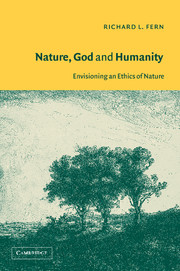Summary
This book has two goals. The first and primary is to develop a framework for reflection. How are we, as a society, to come to terms with nature, wild and human? This “coming to terms” is not simply a matter of addressing the current ecological crisis. More fundamentally, it is a matter of determining our place in the world of nature and, therewith, our relation to the wild creatures with whom we share the planet and its formative, natural processes. Who are we? Who are they? What makes us different? What do we have in common? Addressing these and related questions requires us to take into account not only “the facts” but, no less, “our values.” What do we care about? Is there any reason we ought to care about the well-being of other creatures? Of nature-as-a-whole? What follows attempts to remove some of the confusion and disagreement surrounding these matters and, therewith, our normatively laden relation to nature not by providing a short-cut to the truth but, rather, helping those who care enough to think hard make their way through the labyrinth of complexities involved.
A second, related goal is to develop and defend claims about our relation to nature. Some of these, such as those affirming animal awareness, the inherent purposefulness of natural processes, religious naturalism, and our own, irreducibly communal identity, are integral to the proposed framework for reflection. It makes little sense apart from them.
- Type
- Chapter
- Information
- Nature, God and HumanityEnvisioning an Ethics of Nature, pp. 1 - 8Publisher: Cambridge University PressPrint publication year: 2002
- 1
- Cited by



